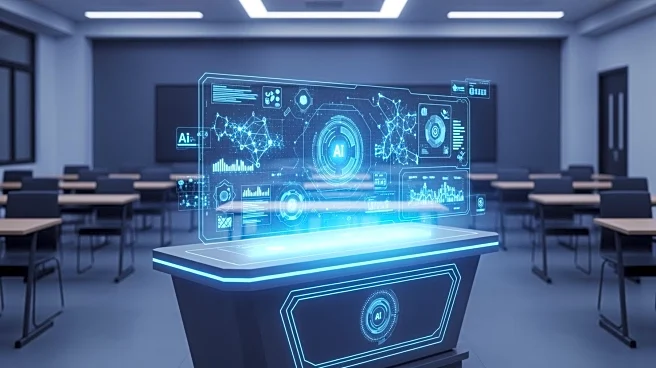What's Happening?
A recent opinion piece discusses the potential impact of artificial intelligence on the teaching profession. While some experts predict AI could threaten teaching jobs, the article argues that AI will not replace teachers but rather transform the way
they teach. AI can assist with routine tasks, allowing teachers to focus on providing authentic human connection and mentorship. The integration of AI in education could lead to improved instructional quality and reduced teacher stress, ultimately benefiting both educators and students.
Why It's Important?
The integration of AI in education represents a significant shift in how teaching and learning are conducted. By automating routine tasks, AI can help alleviate the workload of teachers, potentially reducing burnout and improving job satisfaction. This could lead to better educational outcomes for students, as teachers have more time to focus on personalized instruction and mentorship. However, the successful integration of AI requires proper training and support for educators to ensure that AI is used effectively and responsibly.
Beyond the Headlines
The use of AI in education raises important ethical and practical considerations. Ensuring data privacy, accessibility, and the responsible use of AI are critical to its successful implementation. Educators must be equipped with the skills and knowledge to use AI tools effectively, and teacher-preparation programs must evolve to include training on AI integration. The potential benefits of AI in education are significant, but realizing them requires careful planning and a commitment to maintaining the human elements of teaching.

















